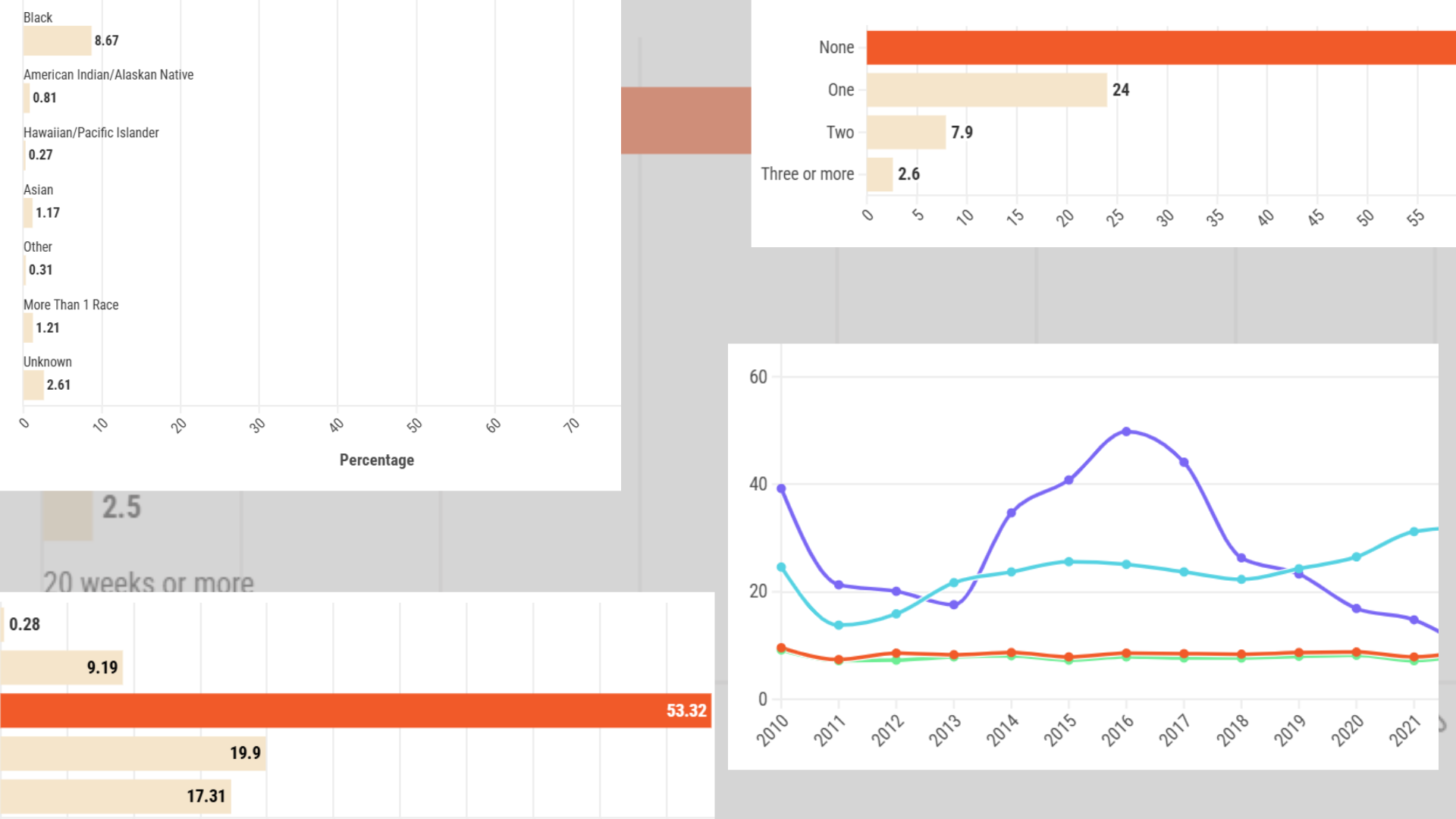Abortion is not uncommon. The Guttmacher Institute, a nonprofit research group that supports abortion rights, estimates that one in four women in the United States will have an abortion within her lifetime. (Individuals who do not identify as women also have abortions, but the US Census Bureau does not currently account for gender diversity. For this reason, The Monitor has chosen to refer to abortion patients as women.)
As The New York Times pointed out in 2021, “the portrait of abortion in the United States has changed with society.”
Inspired by that piece, The Maine Monitor examined the demographics of abortions in Maine and found that the typical patient is an unmarried white woman in her 20s who has not had an abortion before. She is likely to be in her first trimester of pregnancy.
The demographics of a typical abortion patient in Maine largely mirror the demographics nationally, with one exception: people who get abortions in Maine are less likely to have other children than abortion seekers nationwide.
The demographic data below was compiled by The Monitor from the Maine Center for Disease Control and Prevention’s Division on Public Health Systems. Maine law changed in 2023, and the state no longer reports certain demographic data, including race, marital status, information on children or previous abortions.
The abortion rate has stayed relatively steady since 2010
Abortion rates in Maine are lower than the national average. Last year there were 10.1 abortions per 1,000 women of reproductive age performed in the state, compared to a national rate of 15.9.
Roughly 17 percent of the state’s population — 247,378 people — are women of reproductive age between 15 and 44.
Since 2010, the number of medical and surgical abortions performed each year in Maine has averaged around 2,000.
That number had been mostly falling until 2022, when it rose to 2,225 from 1,915 the year before, coinciding with the decision of the U.S. Supreme Court to overturn Roe v. Wade.
But remains higher than average for some groups
Abortion rates in Maine vary significantly by race. Mirroring the nation as a whole, Black and Indigenous populations have higher rates of abortion than White women.
They are also more likely to die from pregnancy-related causes, to have reduced access to prenatal care and to have worse maternal health outcomes than their White counterparts, according to a 2022 report to the Maine Legislature produced by a commission tasked with studying racial disparities in prenatal access in Maine.
Is White
The majority of people who get abortions in Maine — 85 percent in 2022, the latest data available — identify as White.
Roughly 9 percent of patients that year identified as Black or African American.
Is in her 20s
Most abortion patients in Maine are in their 20s. Roughly ten percent are in their teens; 36 percent are in their 30s and 40s.
In Maine and in the United States, people are starting families later — around 44 percent of babies born in Maine between 2021 and 2023 were born to people in their 20s, compared to 25 years ago, when that figure was more than 60 percent.
Has never had an abortion
Most people who got an abortion in Maine in 2022, the latest data available, had never had one before.
Roughly a quarter reported having had one previous abortion, while around 10 percent said they had had two or more.
Is in her first trimester
As in the nation as a whole, most abortions in Maine — 94 percent — happen in the first trimester of pregnancy, before the end of the 13th week. Most occur before 9 weeks.
A small fraction occur in the later stages of pregnancy. Maine law allows for abortions up to the point of viability, generally considered between 22-24 weeks, with exceptions to save the life or health of the pregnant person.
Has a medical abortion
Maine has a higher rate of medical abortions (in which a pill or pills are taken to induce miscarriage) than the national average.
In 2023, 71 percent of patients in Maine chose this option, which is available early in pregnancy. Nationwide, roughly half of women seeking abortions chose to end their pregnancy using pills.
Is not married
Most people seeking abortions in Maine — more than 80 percent — are not married.
Does not have children
Roughly half of people seeking abortions in Maine report having children.
In 2022, roughly 21 percent reported having one child, 17 percent had two and 12 percent said they had three or more children.







